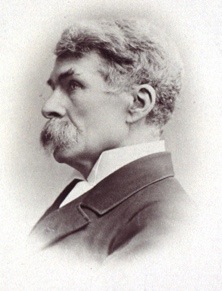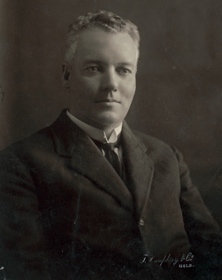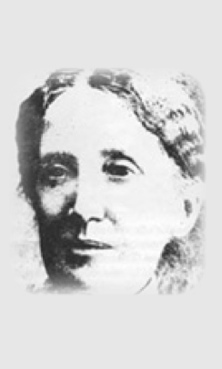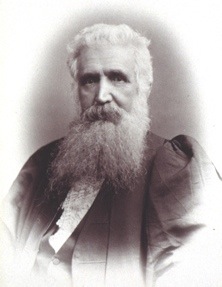Edward Braddon was born in Cornwall, England. He migrated to Tasmania in 1878 and settled at Leith on the north-west coast. He entered the Tasmanian Parliament the following year and was Premier of Tasmania from 1894 to 1899.
Premier Braddon was especially clever at making sure that government money was not wasted. The money was used to build important roads, harbours and railways. To help raise money for Tasmania, he even arranged for Tattersall’s lotteries to be set up.
When Federation was being discussed, Braddon was very keen for Tasmania to join, but not if it would disadvantage the colony. He was concerned that Tasmania could lose the money raised from the intercolonial tariffs they collected on imported goods. The Tasmanian Government counted on getting this money and desperately needed it. The plan for Federation was that the new federal government would collect all the tariffs and keep the money for its own needs.
Braddon was a Tasmanian representative at the Australasian Federal Conventions and upset some of the other delegates when he insisted at the last moment that the federal government give three-quarters of the tariff money back to Tasmania and the other States. This would have forced the federal government to increase tariffs and so its opponents called it the ‘Braddon blot’. However, he won the argument, and Tasmania received this important income for 10 years after Federation.
Edward Braddon was elected to the first Federal Parliament in 1901, when he was nearly 72 years old. He still holds the record for being the oldest person to enter the House of Representatives.



